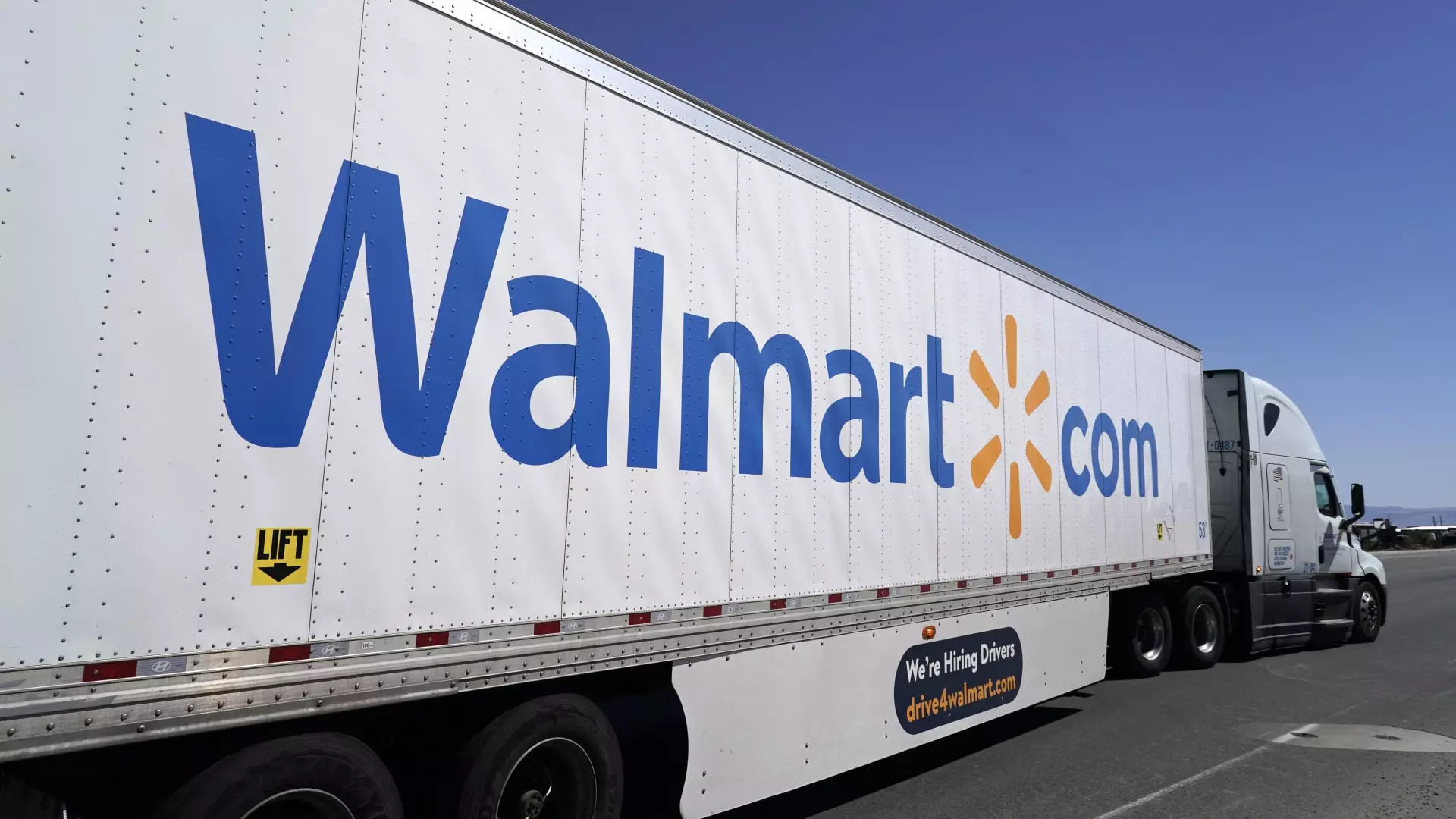In a significant move to protect gig economy workers, the Consumer Financial Protection Bureau (CFPB) has leveled a critical complaint against Walmart and Branch Messenger. Allegations detail a systematic scheme that purportedly forced over a million delivery drivers participating in Walmart’s Spark Driver Program into problematic deposit accounts that complicated their payment processes. The implications of such actions cast a shadow on the urgency of legislative and corporate accountability concerning labor rights in the rapidly evolving gig economy.
CFPB Director Rohit Chopra emphasized the harm caused to these workers, highlighting an environment of deception and coercion. “Walmart made false promises, illegally opened accounts, and took advantage of more than a million delivery drivers,” he stated, capturing the essence of the grievance. The complaint accuses these corporations not only of misleading their employees but also of implementing practices that erode their financial well-being due to hidden fees and poor account management.
At the heart of the allegations lies the assertion that Walmart and its affiliate, Branch Messenger, unilaterally opened accounts for drivers without their consent. Claims suggest that drivers were coerced into using these accounts under threats of termination, straddling a precarious line of legality in the distribution of gig work payments. Compounding this dilemma was the issue of accessibility; drivers reportedly faced a barrage of difficulties related to fees and delays whenever they attempted to transfer their earnings to other financial institutions. The toll estimated from these financial obstacles exceeded a staggering $10 million, essentially labeling these charges as “junk fees” that unjustly reduced the income of the workers involved.
Such allegations spark a broader conversation about ethical corporate practices in the gig economy. As traditional employment gives way to more flexible but often precarious gig jobs, the need for protective measures for workers becomes increasingly urgent. The dynamic between workers, large corporations, and financial intermediaries stands at a crucial crossroads, necessitating a thorough investigation into the practices that govern these relationships.
In response to the allegations, Walmart was quick to refute the CFPB’s claims. A spokesperson for the retail giant criticized the bureau, labeling the lawsuit as a hasty action full of inaccuracies and legal misinterpretations. Walmart’s position indicates a strategy of not only disputing the allegations but also pointing to perceived procedural unfairness within the CFPB’s investigation efforts. Such denials may indicate a larger resistance to regulatory oversight in a framework where scrutiny is essential for consumer protection.
Branch Messenger’s counter-argument further complicates the narrative, claiming that the CFPB misrepresented facts and engaged in an overreach of authority. The divergence in claims between these corporations and the CFPB raises questions regarding the accountability structures within financial regulations and the treatment of workers in the gig economy. This clash exemplifies the tensions inherent in the relationship between regulatory bodies and the corporations they oversee.
This lawsuit is not an isolated incident; it falls within a wider pattern of regulatory scrutiny regarding worker financial accounts. The CFPB has previously taken action against other entities for improper management of financial services, signaling a potential pivot toward increased oversight within this sector. Notably, the CFPB’s actions against Comerica Bank and various prominent financial institutions regarding fraud investigations reflect a more comprehensive effort to assert consumer rights and promote ethical business practices.
As this situation unfolds, it will be crucial to observe both the judicial outcome and the potential ramifications for workers and gig economy platforms alike. With estimates suggesting substantial financial losses due to mismanagement and illegal fees in other contexts, such as the Zelle payment network’s troubles, the response from courts may set significant precedents regarding worker protections in the larger landscape of the American workforce.
The CFPB’s lawsuit against Walmart and Branch Messenger not only underscores the need for concrete protections for gig economy workers but also highlights the urgent necessity for transparency and fairness in corporate practices. As stakeholders continue to navigate this terrain, the outcomes will shape the future of labor rights, corporate accountability, and consumer protection in an increasingly digitized labor market.

Leave a Reply